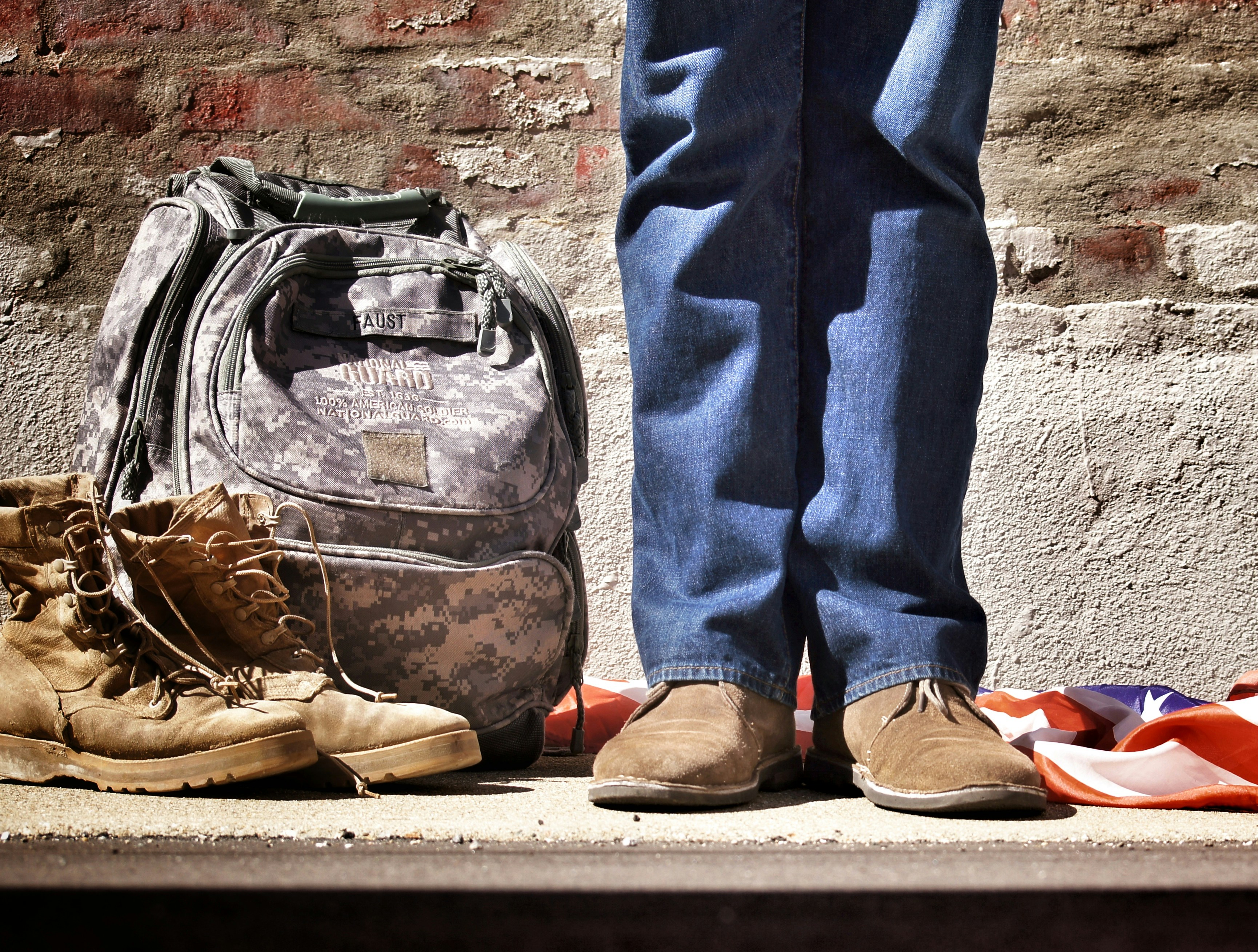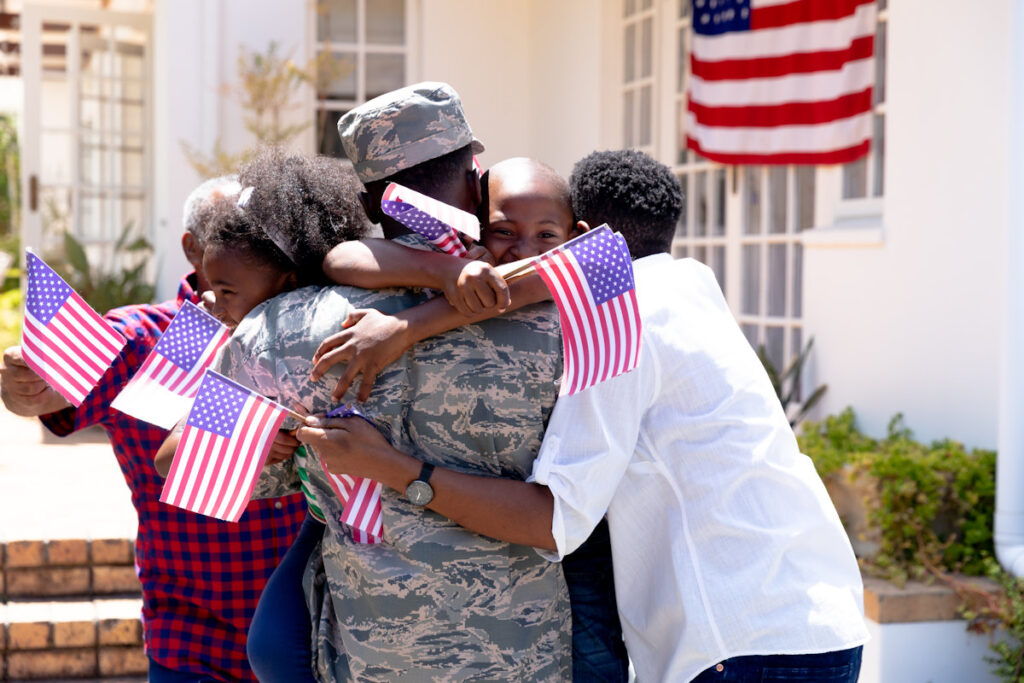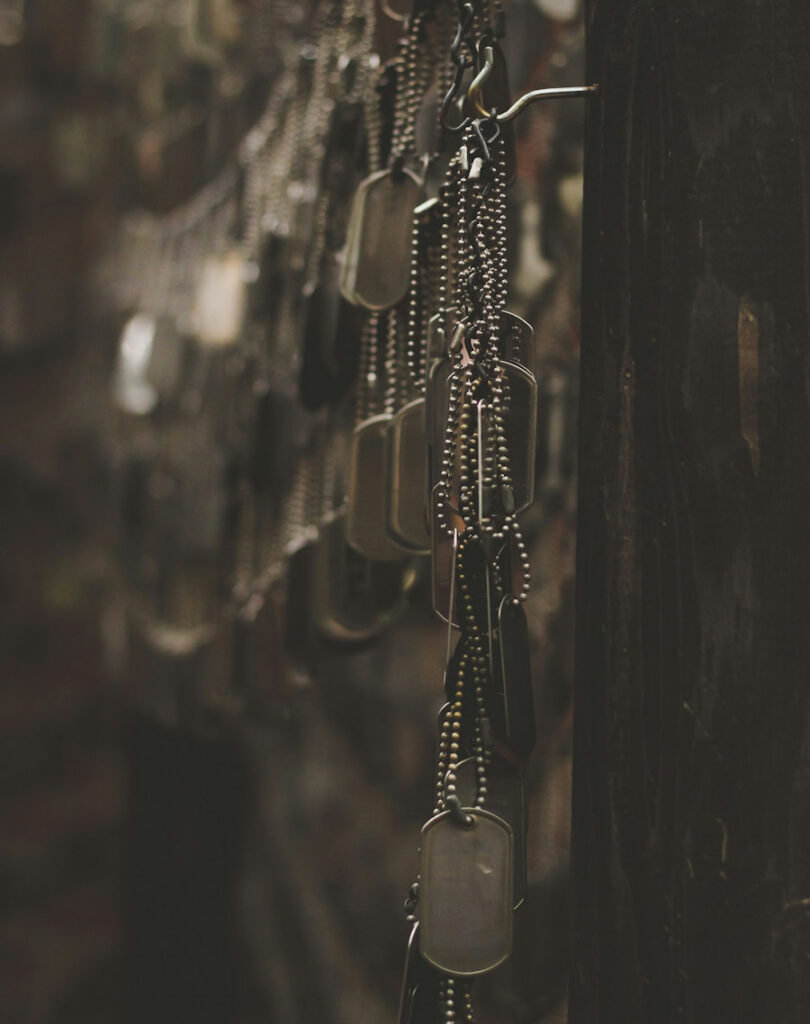Invisible Wounds:
Serving Those Who Served
Incredible advancements in medical and military technology are increasingly saving the lives of our service members. Soldiers are better prepared and physically more protected than ever before. Soldiers are now walking away from events that would have been fatal in the past. But casualties of a different kind have become more common. Invisible wounds, such as mental health, cognitive, or emotional impairments, may occur from countless training exercises and difficult deployment experiences.
One of my commanding officers and a mentor when I served in the Army, Lt. Col. Dave Grossman, highlighted in one of his books that a service member’s sacrifice occurs not only during deployment, but also when they return home. I have been honored to spend much of the last 20 years working with veterans and their families who are experiencing challenges in their lives and learning to cope with these invisible wounds.
Our military comprises approximately 1% of the US population. Yet, studies show that, among service members deployed to combat zones like Afghanistan and Iraq, the rate of PTSD is reported to be 15 times higher than that of civilians. Depression rates are as much as five times higher.
In a 2023 study commissioned by the Department of Defense, mental health conditions among U.S. active-duty service members accounted for more hospitalizations than any diagnostic category other than routine medical care.
Inevitably, this affects work, family, and relationships, manifesting as short tempers, missed workdays, marital discord, addiction, or suicide. These challenges are shared by the children of service members too, and the repercussions of difficult military life are felt across generations. Families are often subjected to frequent moves, lengthy combat deployments, overseas assignments, long hours, and dangerous work.
Unlike the physical wounds of war that maim or disfigure, PTSD, depression, anxiety, sexual-dysfunction, and substance abuse often remain invisible. These wounds may take years to develop and often surface only when the service member transitions from military to civilian life.
Service members trained in modern war tactics may struggle to confine well-honed combat skills to the battlefield. While this skill serves them and our country well during conflict, it may not work as well at home. Survival instincts in the field become reflexes that are difficult to turn off.
Additionally, military culture often assigns a stigma of weakness to those who seek therapeutic help. Therefore, service members may have a conflict between seeking help and repairing relationships versus advancing one’s military career.
To maintain an effective fighting force, the military promotes individual strength and independence. Soldiers, sailors, airmen, and marines are encouraged to develop this inner strength and self-reliance, taking pride in their toughness and mastering stress. In this culture of independence, military family members may avoid confiding in loved ones or accepting help, often neglecting their mental, emotional, and physical needs.
Probably much more common than most imagine, the Department of Veteran Affairs estimates that 2 in 5 veterans may have a need for mental health care. These statistics do not include the thousands of veterans in the DFW area who have decided not to get help. Estimates typically understate the prevalence of PTSD, major depression, generalized anxiety, and chemical dependency by service members.
Fortunately, in addition to mental health services, there are numerous organizations in the DFW area whose primary mission is to help and advocate on behalf of veterans and their families.
The unfortunate reality is that many of these resources are underutilized as service members don’t seek treatment because of negative attitudes associated with mental health care. This leads to a downward spiral where service members feel even worse about themselves believing they are alone or uniquely afflicted. As service members lose confidence in themselves and their future prospects, shame and isolation begin to creep into their lives further causing them to avoid treatment. However, effective mental health care can empower these men and women of action to reclaim their self-worth and identity.
Safeguarding mental health is essential if we are to honor those who have served our nation. One of the core concepts I learned in the military is teamwork. Veterans want to be part of a “buddy team,” they want to belong, and they need to be proud of who they are, what they did, and what they do. This mission-critical camaraderie is the nucleus around which the U.S. military force is built. It allows the military to accomplish tasks larger in scale and more complex than could ever be accomplished by individual members alone.
How we approach mental health should be the same. It’s important that our heroes know they don’t have to face life’s challenges alone. Teamwork is at the heart of counseling too. Veterans benefit from talking with other veterans who have been there; and once therapeutic teams are built and trust is established, service members will begin to see positive change in their lives. I have been fortunate to witness this positive transformation many times.
It’s never too late to ask for help and take advantage of the available resources every service member and veteran has earned. From educational and vocational counseling, judicial help in Veterans Court, independent living programs, equine assisted therapy, peer-support groups, earned benefits, financial assistance, or access to private mental health counseling, support is available.
Each veteran’s experiences, emotions, and memories are unique. I am honored to serve those who have served, to hear their stories and be part of their positive transformations. If you or a veteran you know is in crisis, help is available. I encourage you to recruit an experienced and qualified counselor to join your team and help you find your path. It is time to move forward to the peace and happiness that our Heroes so richly deserve.

God bless our nation’s service members, our veterans, their families, caregivers, and survivors.
Til Valhalla! Gregg Malone, PhD, LPC-S, LCDC

